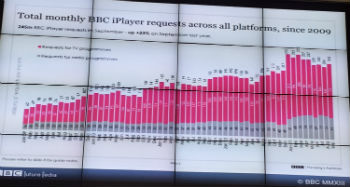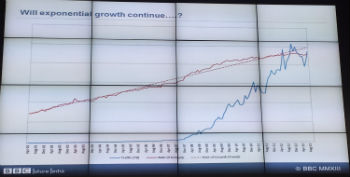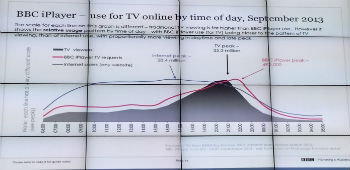Bandwidth usage of streaming video from in page ads uses up data bundle for those people with low data caps on their service – such as satellite based broadband
Oh joy. I keep falling over sites that autoplay videos, and some — I’m looking at you, Facebook — do not appear to have a simple option to switch off this, er..uh, ‘option’. Ignoring some of the real basics are the spurious claims that our bandwidth is being protected with such tricks as video ceasing to play when the screen is scrolled down, or “it only works when you are connected to wifi”.
First, the video by playing has already consumed some of my precious bandwidth. You can’t just mine these bits at home, you know; data bits are a commodity that have to be bought and paid for. I will press the Play button if I want a video to play, otherwise autoplay is actually forcing me to (a) view something I probably don’t want to view, and (b) causing me to pay for the privilege of viewing that something I don’t want to view, which is on the whole, utter dross. And it is usually advertising dross at that, funded by “someone” to reach an unwilling and hence unresponsive audience. You, oh advertiser, may have money to chuck down the proverbial drain, but many of us out here who are paying to receive your video message do not!
Second, what on earth has a wifi connection got to do with it all? Apart from moving the video dross onto a marginally cheaper option than mobile (i.e., by using my fibre, cable or landline-based broadband tariff instead), someone still needs to pay for the bits received. And for those on satellite dishes it makes no difference how video is configured to play, the consumer is going to be extremely cross to find their monthly data allowance munched through regardless of the pain this can cause to the unwillingly disconnected.




